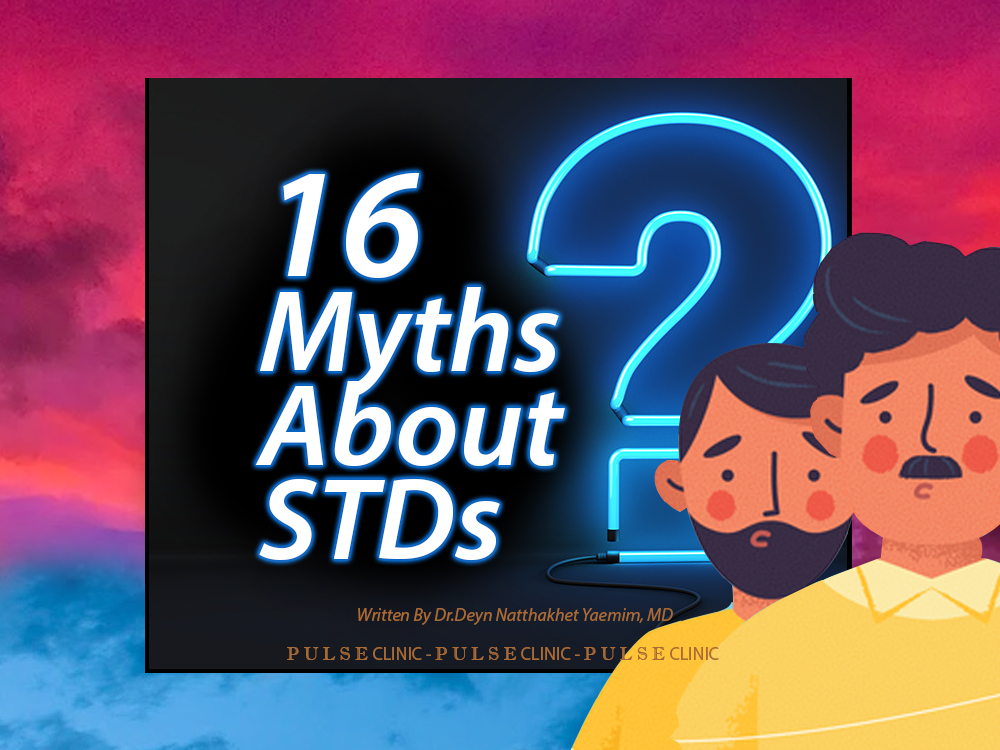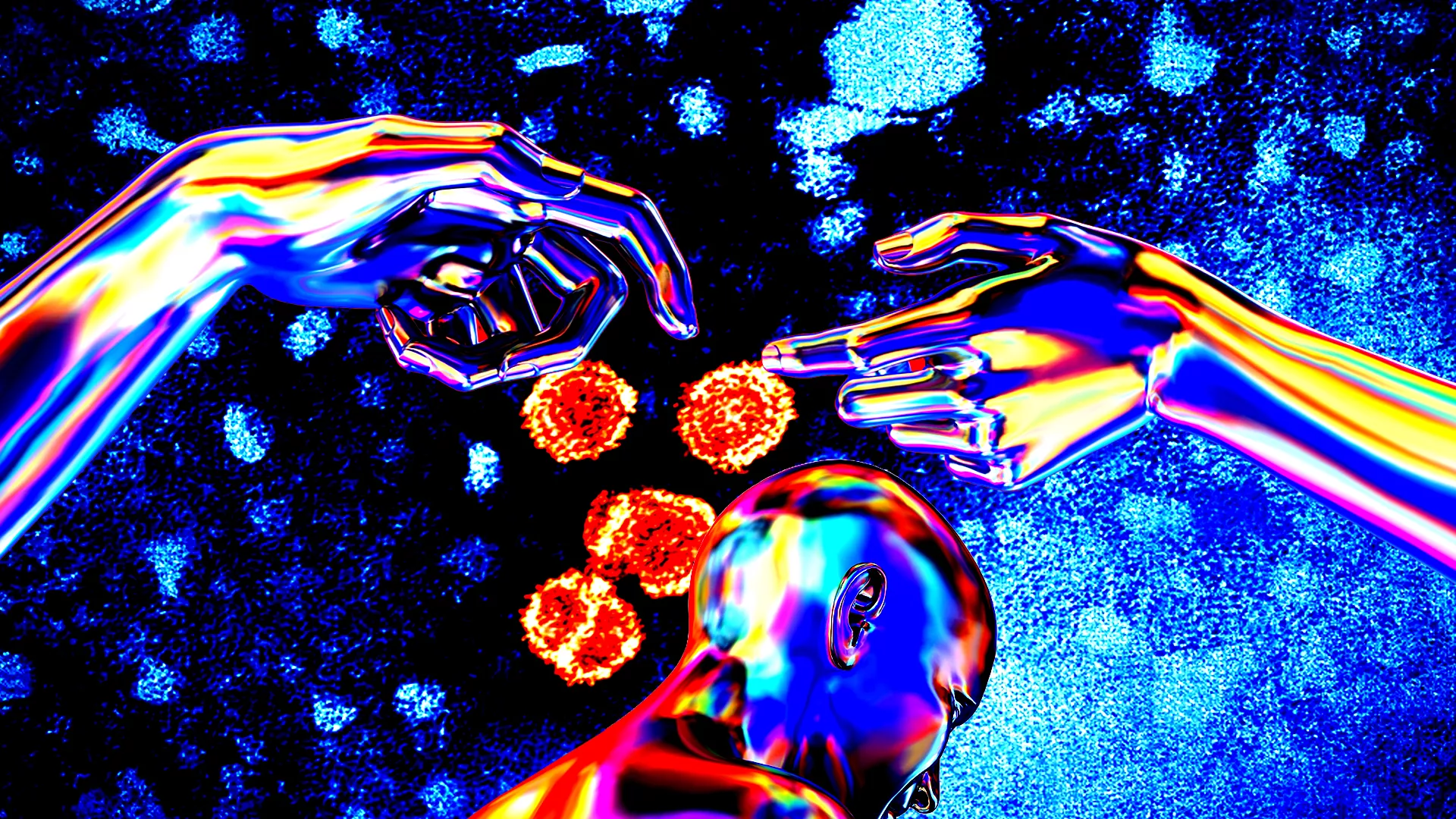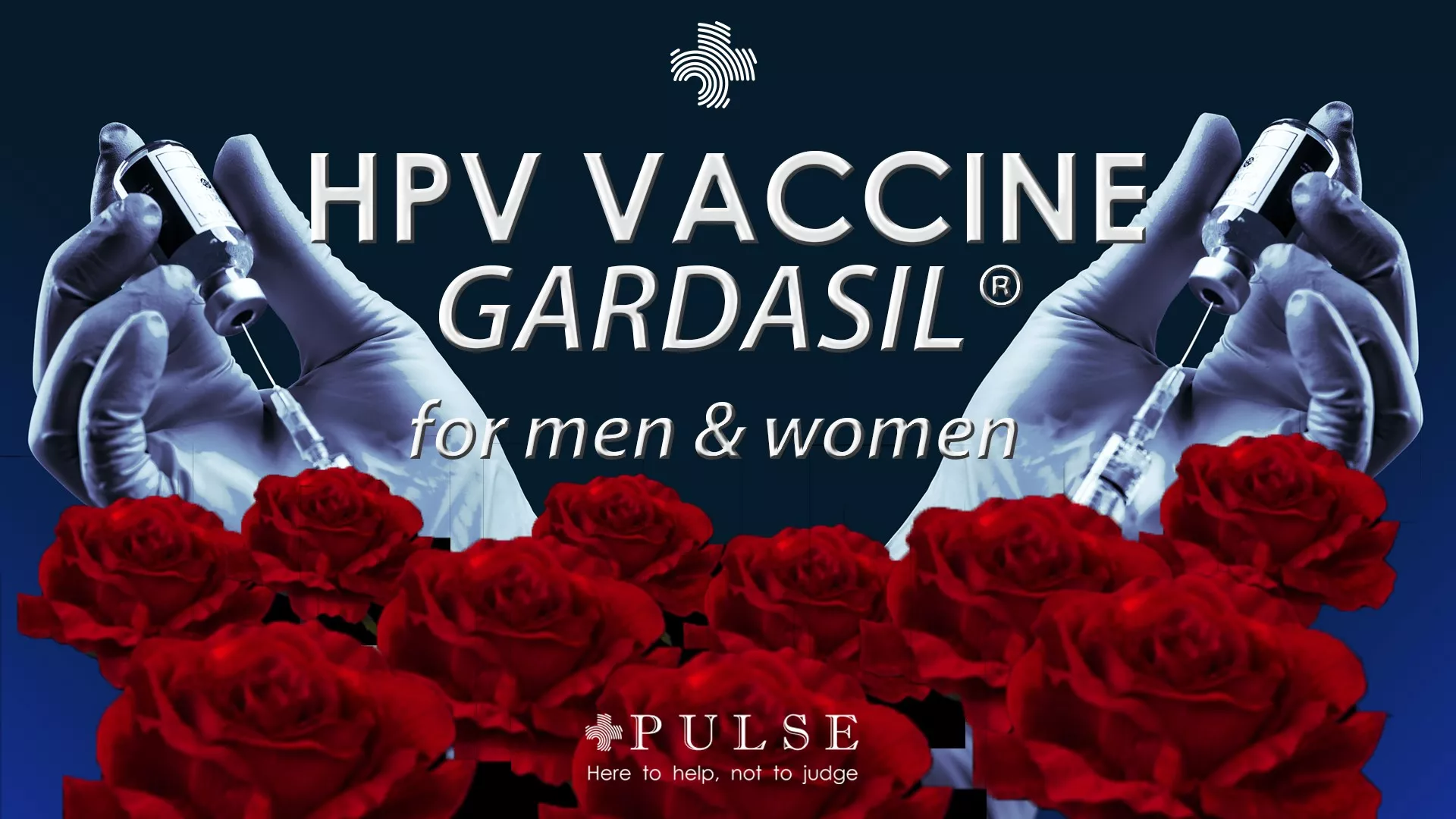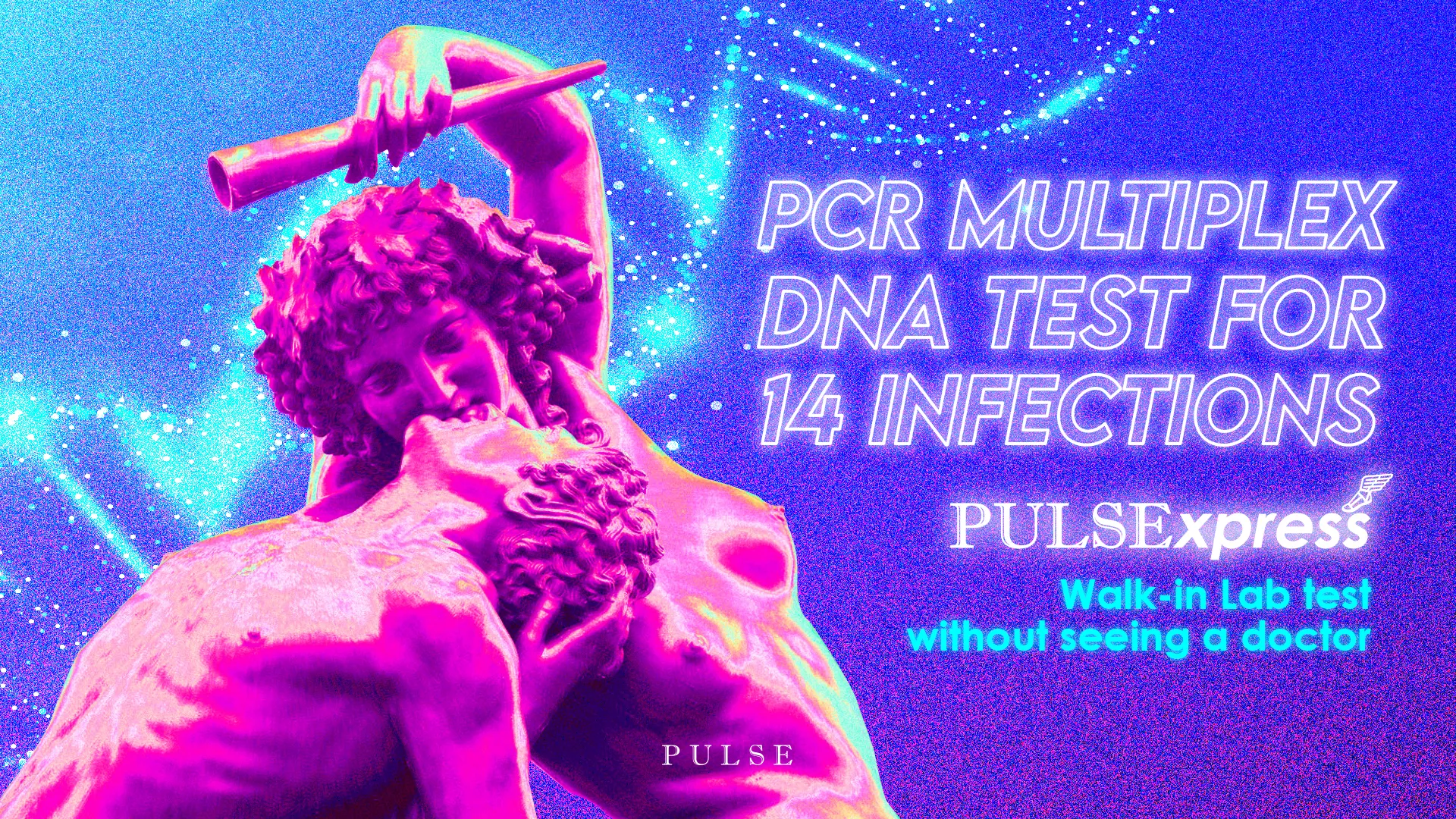HPV Vaccine (Gardasil 9) in Thailand (Bangkok, Phuket, Pattaya, Chiang Mai, Koh Samui))
8559
HPV vaccine (Gardasil 9) in Thailand (Bangkok, Phuket, Pattaya, Chiang Mai, Samui) All PULSE clinics provide the latest HPV vaccine for men and women
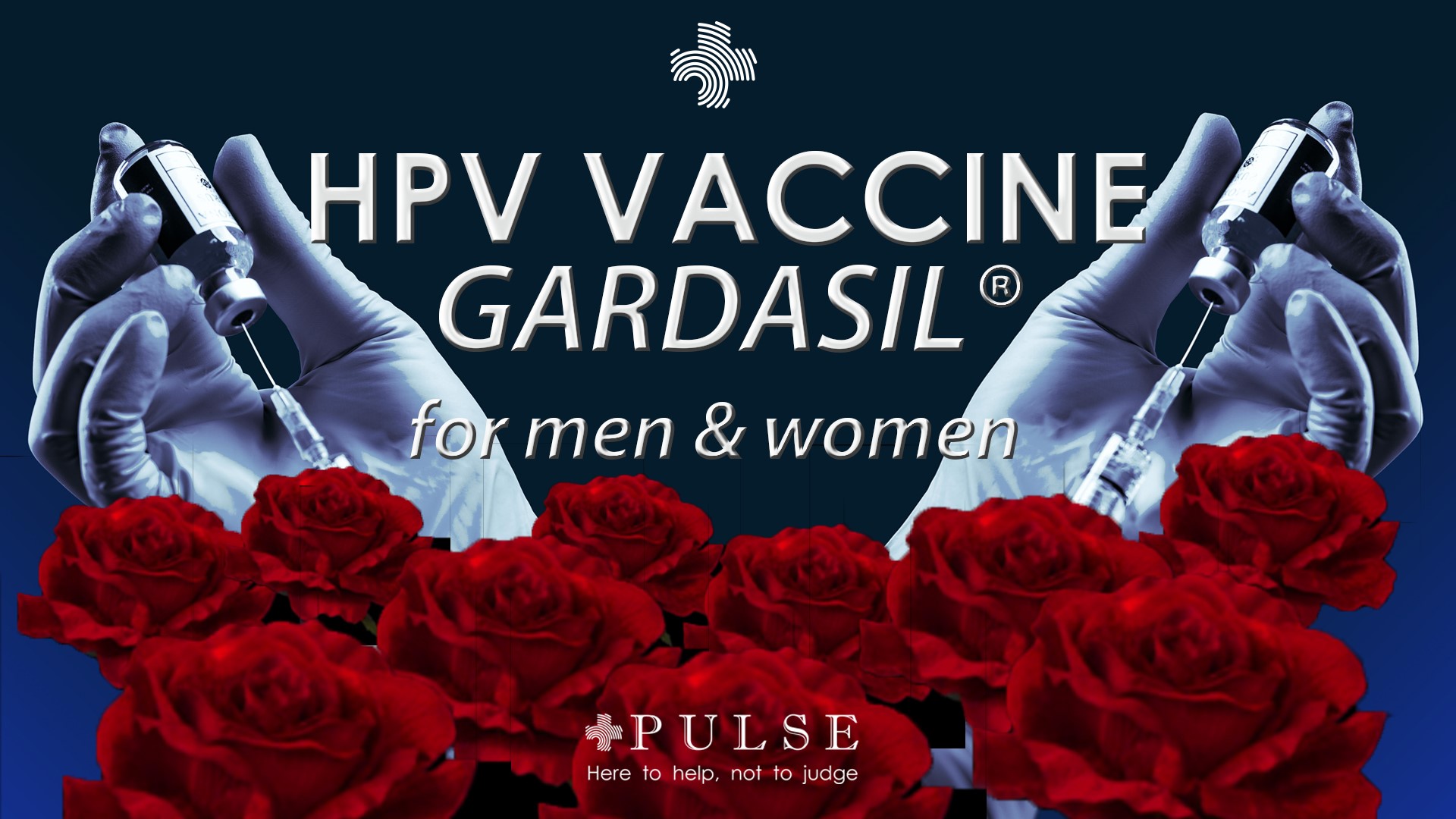
HPV VACCINE (Gardasil®) IN Thailand (Bangkok, Phuket, Pattaya, Chiang Mai, Koh Samui)
Dr.Deyn | 9 August 2019, reviewed and updated on 10 March 2021
HPV VACCINE PRICELIST AND PROMOTION AT PULSE CLINIC (THAILAND)
| HPV Vaccine 9 Types (Gardasil 9) | Dosage | Price |
| 1 Single Dose | 9400 THB | |
| A Complete Course of 3 Doses | 28200 THB 26000 THB |
| HPV Vaccine 4 Types (Gardasil 4) | Dosage | Price |
| 1 Single Dose | 3600 THB | |
| A Complete Course of 3 Doses | 10800 THB 10000 THB |
Book Your HPV Vaccination Today!
For any inquiries about getting HPV vaccines at PULSE Clinic, please contact info.bkk@pulse-clinic.com or any of the following platforms
![]() +66 65 237 1936
+66 65 237 1936  @PULSEClinic
@PULSEClinic ![]() PulseClinic
PulseClinic
What's HPV and how does it spread?
HPV is very common and you can catch it through intimate sexual contact with another person who already has it. There are over 200 types of HPV. Because it's so common, most people will get infected at some point in their life. People are often infected without knowing it as there are usually no symptoms and infections tend to go away on their own. HPV is the most common sexually transmitted infection. HPV is spread mainly by skin-to-skin contact, not just anal and vaginal and oral sex.
Genital HPV infections are highly contagious and usually associated with sexual contact. Nearly all sexually active people get infected with HPV at some point in their lives. The risk increases with the number of sexual partners you and/or your partners have.
Protect yourself from HPV warts and HPV-related cancers.
As you may have known there are many types of HPV (Human Papilloma Virus) and some of them such as type 6, 11, 16, 18 are the leading cause to cervical cancer in women as well as anal cancer in men. More than 9 of every 10 cases of cervical cancer are caused by HPV. HPV doesn’t only affect women. Nearly 4 out of every 10 cases of cancer caused by HPV occur among men. Every year in the U.S., over 13,000 men get cancers caused by HPV. These cancers can be largely prevented by the HPV vaccine.
What diseases can it cause?
HPV infections that persist can lead to cancers – anal, throat and penile (penis) cancers in men, and cervical cancer in women.
HPV type 16, 18 are the major cause of cervical cancer and are the main cause of HPV-associated cancers in male and female such as
- Anus and back of the throat, including the base of the tongue and tonsils (oropharynx), in both women and men.
- Penile cancer in men
- Cervix, vagina, and vulva in women.
HPV type 6, 11 are the main causes of anal wart and genital wart.
HPV type 31, 33, 45, 52, 58 are 15% cause of cervical cancer.
Cancer often takes years, even decades, to develop after a person gets HPV. Center of Disease Control recommends HPV vaccination at ages 11-12 to protect against these cancers. There is no way to know which people who have HPV will develop cancer or other health problems. People with weakened immune systems (including individuals with HIV/AIDS) may be less able to fight off HPV and more likely to develop health problems from it.
Information about the vaccine
There are 3 types of HPV vaccine, all of them are non-infectious vaccine
- 2v = bivalent HPV vaccine (Cervarix, HPV 16, 18)
- 4v = quadrivalent HPV vaccine (Gardasil®4, HPV 6, 11, 16, 18)
- 9v = nonavalent HPV vaccine (Gardasil®9) in Singapore, HPV 6, 11, 16, 18, 31, 33, 45, 52, 58)
2v, 4v, 9v all target HPV 16, 18 which are the cause of cervical cancer (66%) and are the main cause of HPV-associated cancers in male and female (6 types mentioned above). Both 4v, 9v also work to prevent HPV 6, 11 which are the main causes of anal wart and genital wart. 9v has prevention for 5-additional types; HPV 31, 33, 45, 52, 58 which are 15% cause of cervical cancer.
9v HPV vaccine (9vHPV, Gardasil®9, Merck&Co.) has been licensed from USFDA to be used among male and female since December 2014. in February 2015, the Advisory Committee on Immunization Practice (ACIP) recommended that Gardasil®9 used for cancer prevention among male and female. It is widely used for prevention in developed countries.
When to start HPV Vaccine and how many doses do I need?
As soon as possible. In October 2016 ACIP recommended HPV dosage according to age starting the first dose.
- Age less than 15 years old: 2-doses regimen (day 1 and month 6)
- Age above 15 years old: 3-doses regimen (day 1, month 1-2, month 6)
- Immunocompromised people such as HIV infected patient: 3-doses regimen (day 1, month 1-2, month 6) regardless of age
Information for persons who started HPV vaccination series with 4v or 2v and want to complete with 9v
- If you started with 2v or 4v, can you complete with 9v?
- YES, you can - If you completed 2v or 4v course, do you need to receive 9v course again, what would we suggest?
- Most HPV-related cancers are caused by HPV 16, 18 which is already covered by 4v or 2v.
- The benefit of 5-additional types (9v) would be for women, as mentioned above (HPV 31, 33, 45, 52, 58 which are 15% cause of cervical cancer.)
- You still need cervical cancer screening from age 21-65 years old regardless if you are a vaccinated or unvaccinated women.
The HPV vaccine is safe and highly efficacious and can significantly reduce the burden of HPV-related genital warts and cancers among men, in addition to promoting herd immunity.
Possible side effects Like any vaccine or medicine
HPV vaccination can cause side effects. The most common side effects are mild and include:
- Pain, redness, or swelling in the arm where the shot was given
- Dizziness or fainting (fainting after any vaccine, including HPV vaccine, is more common among adolescents)
- Nausea
- Headache
The benefits of HPV vaccination far outweigh any potential risk of side effects.
Trust PULSE CLINIC to take care of your health like other 45000 people from over 130 countries. We provide discreet professional service with high privacy. Here to help, not to judge.
Can genital warts be treated?
Yes. A variety of treatments for genital warts are available for established cases of genital warts. The following are treatment options on how to get rid of genital warts:
Podophyllotoxin, 0.5% solution or 0.15% cream. Apply twice daily for 3 days, followed by 4 days’ rest, fore up to 4 weeks. It is suitable for home treatment of external warts. Rub Vaseline or petroleum jelly at the base of the warts before rubbing the cream to avoid burns. Podophyllin should not be used in pregnant women.
- Imiquimod cream applied 3 times weekly (and washed off after 6-10 hours) for up to 16 weeks is also suitable for external warts. Contraindicated in pregnancy)
- podophyllin and imiquimod creams are used as home remedies for getting ride of genital warts.
- Cryotherapy which involves freezing of the warts with liquid nitrogen is also a treatment modality but the rate of recurrence is high.
- Surgery can be used for genital warts removal. This is done under local or general anesthesia
- Electrocautery, involving cutting the warts with electric current is a treatment option for warts. It is now discarded because of the risk of inhalation of HPV associated with. An inhaled HPV fume/smoke can cause laryngeal carcinoma to the doctor and staff in the treatment room if the treatment room doesn't have proper ventilation system.
Does PULSE CLINIC Singapore provide anal wart or genital wart treatment?
Of course PULSE CLINIC provides treatment for anal aarts and genital warts as well as warty lesions at other area of the body, Book an appointment for STD test and treat or Consultation. We use podophylin or trichloroacetic acid (TCA) following sexually transmitted infections treatment and prevention guidelines. Chemical cautery with a solution of 60 to 90 percent trichloroacetic acid (TCA) is most effective when treating few small, moist lesions. Trichloroacetic acid (TCA) kills genital warts by destroying the proteins in the cells. TCA also can destroy normal cells, which is why you need a careful application by a well-trained doctor. A doctor applies TCA once a week. It is important that only the wart be treated to avoid irritation to surrounding normal tissue.
How Well Does It Works?
Studies show that TCA treatment can remove warts in up to 80 out of 100 cases after 6 weeks of treatment, depends on the size and location of lesions.
TCA is most effective on small, moist areas of warts.
What are side effects from treatment?
TCA usually causes several minutes of mild to moderate discomfort at the site where it is applied. The medicines are not absorbed easily by the body. So it may cause local skin irritation but not whole-body (systemic) side effects. It is hard to control how deeply the acid penetrates the skin. If the acid burns too deeply, you may have pain, skin irritation, and ulcers which will heal. Common side effects of this medicine include: Burning. Swelling of the area where medicine is applied. Tenderness of the skin.
Can HPV infection be prevented?
Condoms don't guarantee protection from infection. This is because HPV can be transmitted by skin contact with areas not covered by condoms.
One of the best ways to protect yourself from HPV infection is to get the vaccine. The vaccine protects against 4 types of HPV (types 6, 11, 16 and 18) that can cause cancer and genital warts.
Trust PULSE CLINIC to take care of your health like other 45000 people from over 130 countries. We provide discreet professional service with high privacy. Here to help, not to judge.
Loading...
Clinic Locations
Loading...



